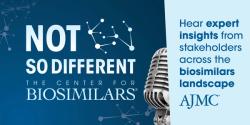© 2026 MJH Life Sciences™ and The Center for Biosimilars - Biosimilars, Health Economics & Insights. All rights reserved.
Gary Lyman, MD, MPH: The Biosimilar Approval Pathway
Gary Lyman, MD, MPH, of the Fred Hutchinson Cancer Research Center and Seattle Cancer Care Alliance, describes the biosimilar approval pathway in the United States.
Transcript:
Biosimilars are approved by the FDA based on a different mechanism than the original products. So the original biologics, some of which go back 20 years, were approved as an originator, an innovator drug. They had to provide not only the preclinical data but several randomized controlled trials demonstrating efficacy and safety.
Obviously that's an extremely costly process, and to facilitate the development of biosimilars, a more expedited process was put in place by the FDA a few years ago which put much more emphasis on the molecular characteristics, structure, and its biologic behavior in the patient: pharmacokinetics, pharmacodynamics, whether there are antibodies formed, immunogenicity, all these things to demonstrate that it’s very similar, highly similar to the original product, but without the necessity of going through the multimillion-dollar, large, randomized phase 3 trials.
Some some of the biosimilars have done that anyway, but the idea here is to reduce the cost of development so that that cost reduction could be passed on in terms of lower pricing and greater competition in the marketplace. So it's really a focus on the preclinical work and the safety in patients, and the assumption that if it's virtually the same molecule, same mechanism of action, doesn't have any safety concerns, it will function essentially the same as the original biologic product.



